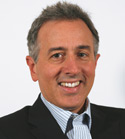The best advice I ever got for dealing with things that terrified me was from a teacher in New York 30 years ago. She said, “Try leaning into your fears.”
It is a human tendency to back away from fear and risk, or to let someone else take it on for you. You can still count me among those with that tendency in mega doses. I have no genuine physical courage. But when I push myself to go through something hard and scary, like a medical procedure or a new business venture, I feel much better for having leaned in. It has been my experience that dread and risk are like everything else. The thing you dread is never as bad as you imagine it will be - or as good. And all things are transient. That is the really good news.
Better to take a risk and overcome it because it may be, in the end, what defines you. And that is the path to a joyful experience, where work and resistance are replaced by effortlessness.
Because more people are in a state of dread and fear than ever, we started wondering, “What does this have to do with the space and satellite business?” After all, few industries normalize and overcome more risk than the satellite industry. We are not known to be risk adverse because it is how we earn our pay. There are few things riskier than a launch, or deploying a US$ 400 million satellite or riding one of these Roman candles into the sky. The potential downside of these risks don’t need no ‘splainin’.
But there are all types of risks that we do not consider. SSPI decided to look at as many as we could name.
https://www.sspi.org/cpages/better-satellite-world-risk
We asked, “What are other risks inherent that may not be considered as such? (And I am not talking about being a Mets fan or buying Intelsat stock….) As we started to jot them down in our production meetings the list kept growing.
There is the risk of starting a business. This one is most familiar to most people. But how about starting one in a place that you visited only once but fell in love with? A place like Asheville, North Carolina, say? Jim Oliver, the founder of AvL did just that. He took a risk starting his company in a place where there was no industry cluster. But because he took that risk, he eliminated a far more deadly risk. His antennas impacted the safety of the military. Whenever a young private went out in the field and needed supplies, they would “burn” a supply list onto a CD and drive a Humvee across the line of fire to deliver it. An average of 30 soldiers were killed each year doing it. But thanks to Jim taking a risk in hilly Asheville, that awful risk was eliminated.
How about the risk of being ethical in a commercial environment? Will Griffin is the Chief Ethics Officers at Austin, Texas-based Hypergiant. He was hired to fulfill a promise made by his CEO, Ben Lamm, to “deliver the future we are promised.” In the world of AI that can mean stopping a product from being produced because it does not pass the company’s rigorous ethical criteria, which includes “the law of humanity.”
This is basically the Golden Rule. If the Hypergiant product does not help humanity, it does not go to market.
There is the risk of being wrong about climate change, which some of us will be. To ensure that fewer of us are not wrong there are business models like BlueField Technologies’, which effectively challenges energy companies and governments on their claims about meeting the standards for methane emissions.
The risk of putting your money where your vision is was also listed. How about a vision that includes figuring out a way for EVERYONE to have a financial piece of the New Space economy? That is a refreshingly bold one for a “money guy” to make. But when that “money guy” is Voyager Space Holding’s Dylan Taylor and you spend 25 minutes with him, the question I asked after was, “Why are people afraid of taking risks this BIG?”
What we have learned is that risk can be tough and end a person’s security for awhile. That is tough stuff. Ask any person who has experienced this “dark night of the soul” and you get a glimpse of what goes on inside them. I wanted to ask. I am amazed that almost to a person their real agenda turned out to be to make a better industry and a better world.
So SSPI, with the support of its sponsors, has started rolling out a special series of The Better Satellite World podcast called, “Risk.” Each Monday we drop a new episode. You can find it on Apple Podcasts, Spotify as well as www.sspi.org.
Let me know if you have a risk you think should be explored.
---------------------------------------
 Lou Zacharilla is the Director of Innovation and Development of the Space and Satellite Professionals International (SSPI). He can be reached at: LZacharilla@sspi.org
Lou Zacharilla is the Director of Innovation and Development of the Space and Satellite Professionals International (SSPI). He can be reached at: LZacharilla@sspi.org





